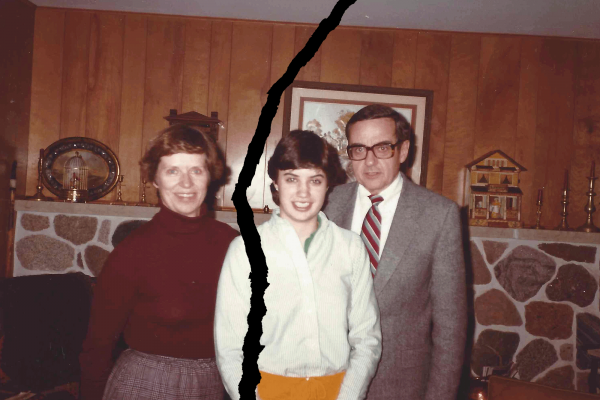The waiting room of a fertility clinic was one of the most sacred places Elizabeth Wanczak had ever experienced. Most of the people sitting around her had weathered trauma and grief like hers — stories of repeated miscarriage, medical catastrophe, and what felt like endless longing for a baby that had not yet come. And yet, she said, the presence of these people in the waiting room signaled hope. They had not yet given up.
What came next for these hopeful parents would not be easy either. Wanczak was at the clinic to begin in vitro fertilization, a process fraught with uncertainty, difficult decisions, a physical toll, and a financial risk. IVF can go on for months and costs $15,000-20,000 per cycle.
For all of these reasons, people do not go into IVF casually, Wanczak said: “These are desperately wanted children.”
Now, in addition to the emotional, physical, and financial variables, conservatives in states like Tennessee, where Wanczak lives, want to add a new variable: an uncertain legal future foreshadowed by the recent judicial and legislative disruption in Alabama. In February, Alabama’s state Supreme Court ruled that frozen embryos are considered “extrauterine children” and that their destruction could be considered wrongful death, prompting some clinics in the state to pause their operations. Less than a month later, the majority-Republican state legislature passed a protection for IVF and Gov. Kay Ivey signed it into law. Critics say the new law does more to protect doctors and embryo-storage facilities than the parents or embryos involved in IVF treatment, by making it more difficult to sue for malpractice when the embryos — often a family’s last hope of having children — are mishandled or damaged.
During the battle in Alabama, reproductive rights groups and fertility patients around the country watched warily as the language of fetal personhood — the same language that has driven the abortion debate since Roe v. Wade — threatens to make IVF a new flashpoint in conservative states.
“If people think Alabama is an outlier, they're fooling themselves,” Wanczak said. “It’s a very scary time to be a woman in the South.”
More risk, more uncertainty
Wanczak has already seen the before-and-after of changing reproductive rights, and how laws based in anti-abortion rhetoric make fertility treatments more complicated. She came to IVF after an “infection Armageddon” following the cesarean section delivery of her first child left her with only one ovary and no uterus. She and her husband felt the clock was ticking as they weighed the options for a second child, ultimately going with IVF and surrogacy after consulting with their pastor in the United Methodist Church. The UMC most recently adopted a 2016 resolution stating that clinicians should treat embryos with utmost care and concern, and not create the embryos “with the sole intention of destroying them.” The guidance then addresses moral implications of using the non-implanted embryos for stem cell research.
Their procedure yielded four embryos. They transferred one to a surrogate right away, and their son, now 5, was born nine months later. They’re open with him about the journey, she said. “He is a miracle and a product of his story.”
They still had three embryos in a cryogenic storage facility when the U.S. Supreme Court overturned Roe v. Wade in June 2022. The court’s decision in Dobbs v. Jackson activated Tennessee’s trigger ban and made abortion illegal in the state.
“Fertility in Tennessee is completely upturned [with Dobbs],” Wanczak said. While state officials assured the public that for now IVF was still legal, Wanczak and her husband still hesitated when their surrogate offered to carry another pregnancy for them, using one of the remaining embryos; if something went wrong in the pregnancy, what would that mean for their surrogate and the pregnancy now that the trigger ban was in place? They went ahead with the transfer, but shortly after found themselves in limbo: The pregnancy, which hormone levels told them was not progressing normally, languished for weeks with doctors unable to intervene. They worried about their surrogate’s health and their own emotional exhaustion. When the surrogate called her own obstetrician he told her, as Wanczak recalls, “The standard of care I could do six months ago I can no longer do in the state of Tennessee.”
For Wanczak, it was a bleak moment, seeing the future of reproductive care marked by even more risk and uncertainty.
Until recently, the primary legislative threats to IVF have been largely unintentional, said Barbara Collura, president and CEO of RESOLVE: The National Infertility Association. She cited a proposed tax law that would give parents a write-off for the death of a child, including miscarriage; and an Oklahoma bill that would include injured fetuses in assault charges. Both would have created an inadvertent pathway for criminalizing the destruction of an embryo. Often, she said, laws like that are written without any thought as to precedent for reproductive technology, and she simply has to work with the author of the bill to make sure the language isn’t going to “potentially harm people’s access to the standard of care for IVF.”
However, Collura said, in the last legislative sessions she and her colleagues began to see model legislation and language that would take direct aim at IVF, especially using language like “unborn children” to refer to microscopic embryos. “It was just kind of jarring when you saw it worded that way because it gave you an emotional reaction,” Collura said.
Legal and religious fight to define ‘personhood’
Fetal personhood has been one of the primary strategies of anti-abortion advocates since the Roe v. Wade decision in 1973. When Justice Harry Blackmun responded to district attorney Henry Wade’s argument that fetal humans were protected under the 14th Amendment, he sparked decades of legal strategy. “If this suggestion of personhood is established, the appellant’s case, of course, collapses, for the fetus’ right to life would then be guaranteed specifically by the Amendment,” he said, in response. In the end, Blackmun and the court determined that fetuses were not constitutional persons, a rationale that has been challenged repeatedly.
The religious case for ending abortion focuses less on constitutional personhood, and more on a theology of personhood. Pro-life Christians, especially evangelicals and Catholics, rely heavily on this argument, finding biblical support in Psalm 139:13 (“…you knit me together in my mother’s womb”), John the Baptist “quickening” in his mother’s womb when encountering the fetal Christ (Luke 1:41), Jeremiah 1:5 (“Before I formed you in the womb I knew you …”), and other references to unborn children. Christians who support abortion rights deny that these verses are sufficient to establish that a fetus has the ethical status of a person outside the womb. Among other arguments, they instead point to the status of the fetus in Mosaic law wherein the damage, even lethal damage, of a fetus was not treated as murder.
This is why reproductive rights advocates monitor for “personhood-ish” language so closely, Collura said. The appearance of this language in the IVF debate signals the battles to come, but she also urges advocates to keep a steady hand and follow the guidance of organizations like hers and the American Society for Reproductive Medicine in spotting which bills or court cases are likely to change the law.
Collura expects to see plenty of lawmakers trying to use IVF legislation as a new way to signal their own pro-life commitments. But many of those bills will be dead in the water, she said, because of the political composition of the legislature, the lobbying involved, the influence of the bill’s author, and who signs on to sponsor it. She watches not just the introduced bills, but tracks which are getting hearings, passing out of committee, or backed by governors.
Protecting reproductive rights is a long game, Collura said, and serious advocates need to know where to direct their resources and energy. “I can’t say the sky is falling every five minutes,” she said.
That said, she has her eye on 16 states where conditions are right for an anti-IVF bill to advance in the future: South Carolina, Oklahoma, Florida, Missouri, Iowa, West Virginia, Kansas, Kentucky, Louisiana, Idaho, Indiana, Texas, Arkansas, Nebraska, Georgia, and Mississippi.
‘We are left with two embryos’
Louisiana already has a law restricting the destruction of embryos, a rule Erica LeJeune knows all too well, as it made her IVF journey a multi-state ordeal. Of the four embryos that resulted from her IVF treatment, they transferred one to a surrogate in Arizona, donated another to a hopeful parent in Tennessee, and have two left in cryogenic storage in Texas. It was made more complicated, she said, because doctors who can help families like hers are becoming harder and harder to come by in states like Louisiana where they fear losing their license or facing criminal charges.
It’s been difficult to decide what to do with the remaining two embryos, because the embryonic genetic testing showed abnormalities that would likely result in either miscarriage or catastrophic complications. LeJeune wants to consider donating the embryos to science; her husband is more inclined to simply dispose of them. A little part of LeJeune, she said, has lingering questions about the level of certainty of the genetic tests available. She has thought about holding off on any decision to see if advances in genetic testing can get them any closer to a definitive answer on whether or not the embryos could be viable; she would consider donating them to another parent, if so.
“We are left with two embryos that we now have to decide what to do,” LeJeune said. “The good news is they’re not in Louisiana; the bad news is they’re in Texas.”
Texas is one of the states with conditions that might spell problems for IVF when its legislature convenes again in 2025. Republicans hold a majority in both chambers, the governor’s office, and the office of the attorney general. Every primary season, including the one this March, pulls the state further and further to the Right, driven by evangelical mega-donors who are staunchly pro-life. Observers have already watched bills that were dead on arrival for a decade suddenly gain traction — like vouchers for Christian schools, for example.
Knowing all of this, when they got a call from the facility last month, LeJeune and her husband had a difficult time deciding if they wanted to pay the $500 for another year of storage — which would carry them into the 2025 legislative session — and risk facing some kind of prosecution if Texas passed a law criminalizing embryo disposal.
What frustrates both LeJeune and Wanczak, is that they did and do value the potential lives of the embryos. Wanczak used the term “maybe babies” when hers were still potentially viable, and LeJeune simply calls them her children. It’s not that they see these lives as optional or inconsequential, both told Sojourners. It’s that, when there’s no viable way to transfer or carry them, “there is no best situation,” LeJeune said. It’s far from the wanton destruction politicians describe, she said. “Politics uses outrage to farm votes. Until you’ve walked in the shoes of someone who has had to make choices about things that farm your outrage, you’ll never know what it’s like.”
Got something to say about what you're reading? We value your feedback!








